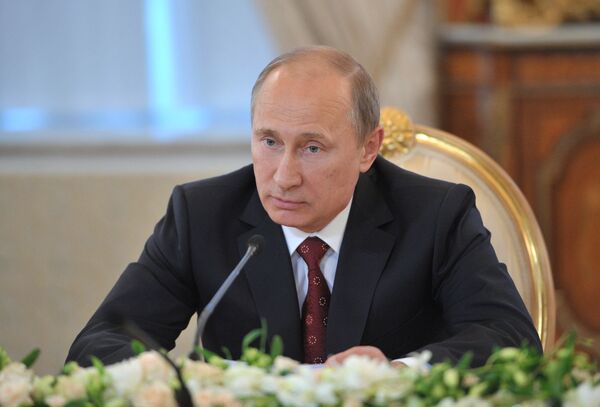MOSCOW, August 9 (RIA Novosti) – The number of Russians who are disappointed in President Vladimir Putin has more than doubled since his first year in power, according to the latest in a series of nationwide polls that started in 2000.
Twenty-two percent of respondents professed disappointment in the country’s long-standing leader last month, compared to 10 percent in 2001, a year after he came to power, according to a new study by the independent Levada Center.
The number of Putin’s unconditional supporters shrank from 19 to 14 percent over the same period, according to the study, published Friday.
Another 16 percent said in July they support Putin as long as he is ready to implement democratic reforms. In 2001, that figure was 28 percent.
Fifteen percent explicitly said they do not support Putin, up 5 percent from 2001. The “anyone but Putin” option was ticked by 5 percent of respondents – compared to 1 percent in 2001 and 0 percent in 2007.
Meanwhile, the number of people who support Putin because they do not see any alternatives remained virtually unchanged: 17 percent in 2001 and 18 percent in 2013.
Respondents also named political experience, public speaking skills and “professional and intellectual qualities” as Putin’s most notable features. In a similar poll in 2000, the qualities cited were good judgment, energy and manliness.
The public continues to view Putin as representing the interests of the security services, but while in 2000, the second and third most popular answers to the question of who he represents were the “family” – the people close to his predecessor Boris Yeltsin – and “the common man,” in 2013 respondents named oligarchs and state bureaucrats, respectively.
The July poll covered 1,600 respondents and had a margin of error of 3.4 percentage points.



